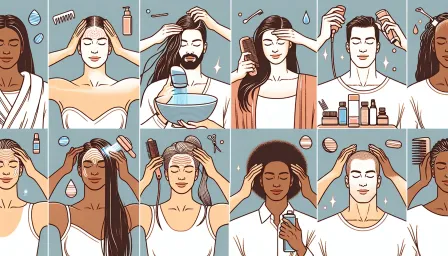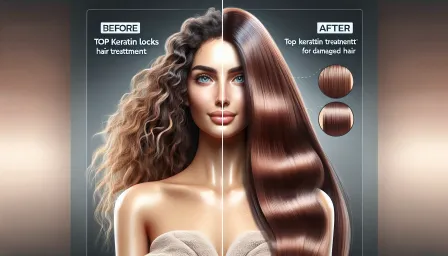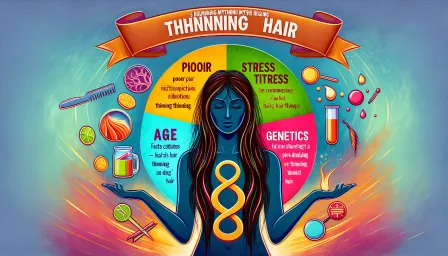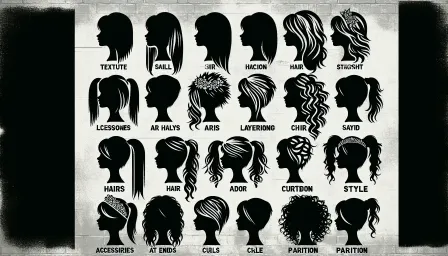Essential Oily Hair Care Tips for Scalp Health

Discover essential oily hair care tips for scalp health. Learn how to manage greasy hair and maintain a healthy scalp with our expert advice.
Dealing with oily hair can be frustrating and affect your overall confidence. The greasy feel and appearance can make it challenging to maintain a fresh look throughout the day. However, with the right oily hair care tips, you can manage oily hair and promote scalp health effectively. This article will provide you with essential tips and strategies to keep your hair and scalp in optimal condition.
Understanding Oily Hair and Scalp Health
Before diving into the tips, it's essential to understand the root causes of oily hair and how it impacts scalp health. The primary factor contributing to oily hair is the overproduction of sebum, a natural oil produced by the sebaceous glands. While sebum is crucial for keeping your scalp and hair moisturized, excessive amounts can lead to greasiness.
The Role of Sebum
Sebum plays a vital role in protecting and moisturizing the scalp. It acts as a barrier against external pollutants and bacteria. However, factors like hormonal imbalances, genetics, diet, and improper hair care routines can lead to an increase in sebum production, resulting in oily hair.
Impact on Scalp Health
Excess oil can clog hair follicles, leading to a variety of scalp issues such as dandruff, scalp acne, and even hair loss. Additionally, an oily scalp can create an unbalanced environment, making it susceptible to infections and inflammation.
Effective Oily Hair Care Tips
1. Choose the Right Shampoo
Using a shampoo specifically designed for oily hair can help regulate sebum production and cleanse the scalp more effectively. Look for shampoos containing ingredients like salicylic acid, tea tree oil, or zinc pyrithione, which help control oil without stripping essential moisture.
2. Wash Your Hair Regularly, But Not Excessively
While it's important to wash your hair regularly to remove excess oil, over-washing can strip your scalp of natural oils, prompting it to produce even more sebum. Aim to wash your hair every 2-3 days and avoid using harsh shampoos.
3. Use a Clarifying Shampoo Occasionally
Incorporating a clarifying shampoo into your routine once a week can help remove product buildup and excess oil. Clarifying shampoos deep-clean the scalp, providing a fresh start for your hair. However, avoid using them too frequently as they can be drying.
4. Avoid Heavy Conditioners on the Scalp
When using conditioner, focus on the mid-lengths and ends of your hair rather than the scalp. Heavy conditioners can weigh down your hair and contribute to an oily appearance. Opt for lightweight, oil-free conditioners instead.
5. Incorporate Natural Remedies
Several natural ingredients can help manage oily hair and maintain scalp health. Apple cider vinegar, for example, balances the scalp's pH and removes excess oil. Dilute it with water and use it as a rinse after shampooing. Additionally, aloe vera can soothe the scalp and regulate sebum production.
6. Maintain a Balanced Diet
Your diet plays a significant role in hair and scalp health. Consuming a balanced diet rich in vitamins and minerals can improve the condition of your hair. Foods high in omega-3 fatty acids, such as fish and flaxseeds, can help regulate oil production and reduce inflammation.
7. Avoid Over-Brushing
Brushing your hair too frequently can stimulate the scalp's sebaceous glands, leading to increased oil production. Use a wide-tooth comb to detangle your hair gently, and avoid brushing directly onto the scalp.
Long-Term Solutions for Scalp Health
1. Manage Stress
Stress can trigger hormonal imbalances that lead to increased sebum production. Incorporating stress management techniques such as meditation, yoga, or regular exercise into your routine can help maintain a healthier scalp.
2. Seek Professional Advice
If you struggle with persistent oily hair and scalp issues, consult a dermatologist or trichologist. They can provide personalized treatments and identify any underlying conditions contributing to your hair problems.
Conclusion
Managing oily hair and maintaining scalp health requires a combination of the right hair care routine, lifestyle changes, and patience. By following these essential oily hair care tips, you can achieve a healthy scalp and beautiful, balanced hair. Remember, consistency is key, and it's important to listen to your hair's needs to find the best approach for you.



























